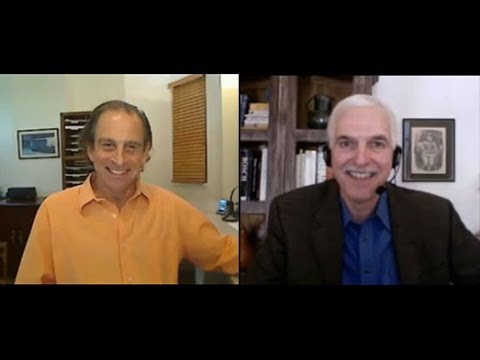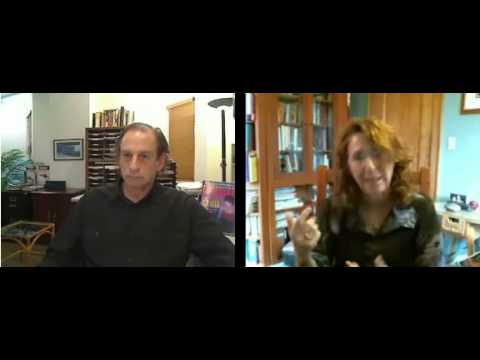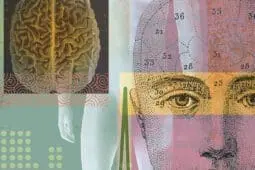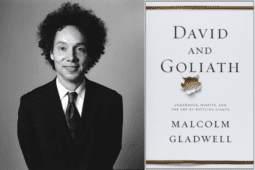Latest
VIDEO: In Search of the Therapeutic Breakthrough
Bruce Ecker on Finding the Underlying Reasons for Detrimental BehaviorsWatch this clip to hear Bruce talk about a client unwilling to leave an abusive situation and the approach he uses to uncover the underlying reasons why. Read more
When Treating Some Forms of Anxiety, Reenacting a Traumatic Memory May Be the Key Read more
The ACE Studies: Calculating the Effects of Child Abuse
How the Effects of Child Abuse Have Become the Biggest Public Health Issue in AmericaSince the publication of DSM-IV in 1994, a massive body of neurobiological research has accumulated, revealing how protracted childhood abuse and neglect can... Read more
VIDEO: Using Corrective Experiences in Attachment-Based Therapy
Diane Poole Heller on Bringing the Concrete to the AbstractDiane Poole Heller talks about one of her therapy techniques: Corrective experiences. Read more
VIDEO: When "One-Size-Fits-All" Doesn't Measure Up
Courtney Armstrong on Creatively ConnectingCourtney Armstrong discusses how she connected with some clients who weren't interested in traditional therapy approaches. Read more
The Therapist as Improv Actor?
Ann Randolph on Using Acting to Access EmotionsAnn Randolph talks about one acting technique in particular that can easily be incorporated into therapy sessions to help clients express their emotions. Read more
What Type of Depression is It?
Margaret Wehrenberg on Working with Low-Energy Depressed ClientsMargaret Wehrenberg identified specific types of anxious/depressed clients and has honed different treatment techniques that are effective. Read more
Adult Attachment Disorder: 3 Detours to the Right Hemisphere
For Clients with Adult Attachment Disorder, Use the Left Hemisphere to Guide You to the Right"People with avoidant attachment histories are too closed down to have access to experience their right-hemisphere processes," says Daniel Siegel, who's... Read more
What’s happening when a client suffering from symptoms of depression is willing to follow the therapist’s voice with eyes closed? According to Zindal Segal... Read more
Practicing Meditation Against All Odds
Zindel Segal on the Three-Minute Breathing SpaceZin Segal discusses how clients can achieve mindful awareness of their emotional states in just three minutes. Read more
When Couples Therapy Causes Emotional Pain
Coming to Terms with Inflicting Emotional Pain in Order to Provide Good Couples TherapyWe don’t become therapists to inflict emotional pain, but eventually we learn that sadness, anger, shock, and disillusionment can be part and parcel of... Read more
Understanding Trauma and the Cycle of Growth
Mary Jo Barrett on Discovering How Clients LearnMary Jo talks about the first stage of trauma treatment, where she teaches clients about the natural cycle of growth in order to discover how they prefer to... Read more
Are Antidepressants the Answer?
Michael Yapko on the Safety and Effectiveness of AntidepressantsMichael Yapko lays out a variety of reasons why antidepressants are not the solution for every client suffering from depression. Read more
The Ethics Gray Zone: Is it an Ethical Violation or Not?
When Unique Issues Arise, Therapist Need to Determine Whether or Not it’s a Potential Ethical ViolationSometimes ethical violations we face with our clients become so subtle and complex that we risk alienating clients when we’re trying our best to protect them. Read more
How To Follow Clients’ Subtle Clues To Deep Healing Places
Diana Fosha Shares an Example from Her Own WorkDiana Fosha uses an example from her own practice of how therapists can begin to catch incongruity Read more
Does Your Depressed Client Even Want to Change?
David Burns on Using Paradoxical Agenda SettingDavid Burns talks about how to set an agenda for therapy. Read more
The Mindful Body: Communicating With the Body in Therapy
How a Transition to Mindful Body-Focused Therapy Enriched a Formerly Talk-Only PracticeIt’s an article of faith among many somatically-oriented practitioners that the body knows more, knows it more directly, and expresses it more honestly than... Read more
Editor's Note - January/February 2014
The Impassable DivideMore and more therapists have begun wondering how far all our impressive-sounding talk about the brain has gone in improving therapy’s effectiveness. After... Read more
The Next Big Step
What’s Ahead in Psychotherapy’s Fascination with Brain Science?Labeling behavior in fancy neurophysiological terms can make what we do sound more scientifically rigorous than the notoriously fuzzy language of... Read more
The Great Deception
We’re Less in Control Than We ThinkMost of us put much too much faith in the power of our conscious minds to bring about lasting change. Instead of looking up the higher branches of... Read more
Beyond Phrenology
Let’s Look at How the Brain Really WorksIf therapists are going to bring genuine insights—not just soundbites—from neuroscience into the practice of therapy, they need the nuanced, sophisticated... Read more
What Is This Thing Called Love?
A Whole New Way of Looking at ItMore than any other positive emotion, love resides within connections. It extends beyond personal boundaries to characterize the vibe that pulsates between and... Read more
Psychotherapy and the Affordable Care Act
Ecstasy in the Consulting RoomThroughout the fall, news about the landmark Affordable Care Act (ACA), designed to extend healthcare coverage to millions of the country’s currently... Read more
How Food Improves Mood
Bringing Nutrition into the Consulting RoomLearning even a little about nutrition and diet can greatly enhance therapists’ ability to help clients with mood problems. Read more
Rewriting the Story
Entering the World of the Abused ChildTherapists must offer abused children a different felt experience of who they are. Read more
Emotional First Aid
Looking Beyond the DSMIn Emotional First Aid, Manhattan psychologist Guy Winch provides an instructional manual for handling the bumps and bruises of life. Read more
Sizing Up Goliath
The Upside of Being UnderestimatedWith his enormous success, Malcolm Gladwell has morphed from a darling underdog to a publishing juggernaut at whom it’s now trendy to sling insults. Read more
Louder than Words
The Unspoken Code of Fathers and SonsA Bruce Springsteen song helps crack the unspoken code of father–son communication. Read more
Learning What a Depressed Client Needs
Elisha Goldstein on Individually Treating Cases of DepressionElisha Goldstein asks clients what they need in tough moments and explains why it helps them learn to trust themselves. Read more
Deliberate Practice: The First Step on the Path to Professional Excellence
One Team Finds that Deliberate Practice is the First Step to Becoming a Superior TherapistHow do the supershrinks do what they do? Are they made or born? Is it a matter of temperament or training? Have they discovered a secret unknown to other... Read more


























